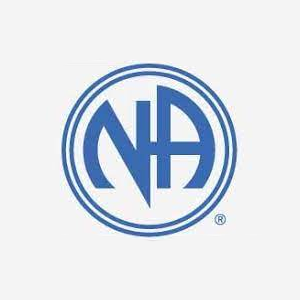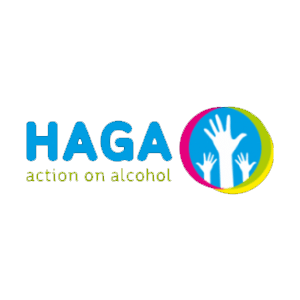Drug & Alcohol Rehab in Waltham Forest

How Does Rehab Work?
Rehab involves the support services and therapies that individuals with drug and/or alcohol addiction receive to conquer addiction and subsequent relapse. As soon as a medical assessment and detox are completed, individuals will start addiction treatment in the form of therapy. Treatment is made up of therapy from a qualified counsellor, the attendance of group meetings as with a 12 Step programme, and the option of inpatient or outpatient rehabilitation. Inpatient rehab services require that clients live at the residence or centre for the duration of therapy. Outpatients will attend therapy by counselling or meetings but will not stay at the facility. Consultation with a medical professional as well as an individual assessment can help determine whether inpatient or outpatient services are suitable for your requirements.
What Happens During Residential Rehab?
Rehab is the first step towards recovery and a substance free life. It can be challenging to work on quitting addictive behaviours on your own but with the support of professional intervention, an addiction free life can be achieved. You may have concerns about the unknown; however, a breakdown of the process can help put your mind at rest.
Rehabilitation from addiction starts with a professional medical evaluation. This evaluation or assessment helps the professional decide which treatment option is most suited to your circumstances. Therapy differs from one person to the next depending on history of drug or alcohol use and the presence of comorbidities (such as anxiety).
Assessments are followed by alcohol or drug detoxification. Individuals who enter detox will begin withdrawing from substances including alcohol, as the body returns to a normal state of function. This timeline will differ depending on the type of drug used and the length of dependency. Only when the system no longer contains the substance will individuals participate in a treatment plan.
During rehab you will receive therapy. Therapy can be provided on an inpatient or outpatient programme. Therapy consists of individual counselling including Cognitive Behavioural Therapy, skill building and group sessions.
1. Assessment

A complete medical assessment is the initial step to receiving the appropriate treatment during rehab. If you are looking into residential rehab, you can expect a telephone assessment by an admissions coordinator. The telephone assessment will provide the treatment facility with the information needed to develop a unique treatment plan. Medical support staff will also have the information to manage patients through the process of detox.
To help you or someone you know, receive the best possible therapy for addiction and substance use, it is important to receive an individual assessment by a dedicated professional. The assessment will aid the course of therapy including treatment for those with comorbid illnesses such as anxiety.
2. Detox

If you are addicted to drugs and/or alcohol or you have a substance in your body, you must undergo detox before you can proceed with a recovery programme. Detox is performed in an inpatient facility or a medical facility. During detoxification, the substance is gradually cleared from the body which usually results in withdrawal symptoms.
It is best to have a managed medical detox because experienced staff are readily available to help you through the withdrawal process. As the substance is no longer consumed, you may begin to experience withdrawal symptoms. Without professional help, there is a higher risk of relapse. Detoxification is followed with a fully tailored therapeutic programme. You can attend inpatient or outpatient therapy that is guided by trained addiction counsellors and a dedicated team.
3. Therapy

Therapy is sought when the body is rid of drugs including alcohol. The choice of being assigned to an inpatient or an outpatient service will depend on the individual assessment, finances and life commitments. Therapy that is offered in treatment ranges from individual counselling with a therapist, the attendance of group therapy, and emphasis on building positive coping mechanisms and skills.
Step by Step Process for Residential Rehab
To understand your medical and mental health history.
Arrange a suitable date to begin your journey to recovery.
Begin the managed withdrawal process from substances including alcohol.
To understand the root cause of addiction and how to overcome it.
Aftercare is provided to help manage the risk of relapse.
To help heal the wounds that addictive behaviour has caused others.
Find your Nearest Rehab Centre in Waltham Forest
The nearest rehab centre is Step By Step Recovery – Drug & Alcohol Rehab London.
Address: Step By Step Recovery – Drug & Alcohol Rehab London, 5-7 Cranwood St, London EC1V 9EE, United Kingdom
Call 0333 4444 432 to discuss your alcohol or drug rehab requirements and any other questions you may have about the process of residential rehab.
Outpatient Addiction Services in Waltham Forest
Outpatient addiction services are available to those who cannot commit to a residential facility or require a more affordable option for treatment. To help you with the best treatment, we provide a breakdown of outpatient services compared to inpatient care.
An outpatient service doesn’t require individuals to stay at the residence for treatment. If you have work, family, or other commitments, outpatient services allow you to focus on these commitments while visiting a facility or therapist to receive addiction therapy and other support services.
Private Outpatient services involve therapy and counselling sessions delivered by a therapist/counsellor. Sessions can last between 60 and 90 minutes. Free alternatives do exist through one of the many reputable charities in the UK (Turning Point), but it does not provide the same individualised care that private services provide.
The Benefits of Outpatient Services
Private Outpatient addiction services also provide tailored care for those looking for optimal support and success in recovery. – Owing to the flexible arranges provided by outpatient therapy, it can facilitate a large range of individuals and financial situations. Therapy sessions are attended one or twice weekly under the guidance of a certified therapist or counsellor. – It is more affordable compared with an inpatient programme.
The Challenges of Outpatient Services
Because one remains at home and exposed to the same triggers, there is a higher risk of relapse and unsuccessful attempts to complete the outpatient programme. Although the NHS and other UK based charities provide free addiction services, treatment is not tailored to the individual’s needs and waiting lists are to be expected.

How Much Does Rehab Services Cost in Waltham Forest?
You can expect to pay between £1500 – £4000 per week for residential rehab. If you cannot afford a private addiction plan, you can rely on free and more economical recovery programmes to address your addiction issues. There are many charities that assist individuals with free and affordable services throughout the UK.
The NHS and charities such as Turning Point offer free addiction treatment services for those having difficulties with substance and alcohol addiction. It is worth noting that Turning Point requires a self-referral to access treatment. You should also find free support groups offered by Alcoholics Anonymous, Cocaine Anonymous, and Narcotics Anonymous very importantfor long term recovery from addiction.
Support Groups in Waltham Forest

Leytonstone
Ground Floor, Leytonstone United Free Church, 55 Wallwood Rd E11 1AY

Wanstead Recovery Meeting Group
London - North East Area, Wanstead Baptist Church, 29 Wellington Road, Wanstead, London, Greater London England E11 2AS

Leytonstone
Ground Floor, Leytonstone United Free Church, 55 Wallwood RdE11 1AY
The Pros and Cons of Seeking Treatment in Your Local Area
Pros
1. You are familiar with the area which may provide a layer of comfort/safety.
2. Family or friends can easily travel to visit or are close by.
3. You could save on the costs of travelling long distances for treatment, or free addiction services may only be offered in your home town.
Cons
1. A local environment means access to drug dealers or other triggers. This is more of a concern if you opt for outpatient programmes.
2. Failing to consider locations outside your local area could mean missed opportunity for more valuable and rewarding programmes.
3. Addiction treatment services that are nearby don’t always offer the best standard of rehab.
In the event you are unsure about a particular addiction treatment service, you can look to the CQC website for more information including a rating of that service.


